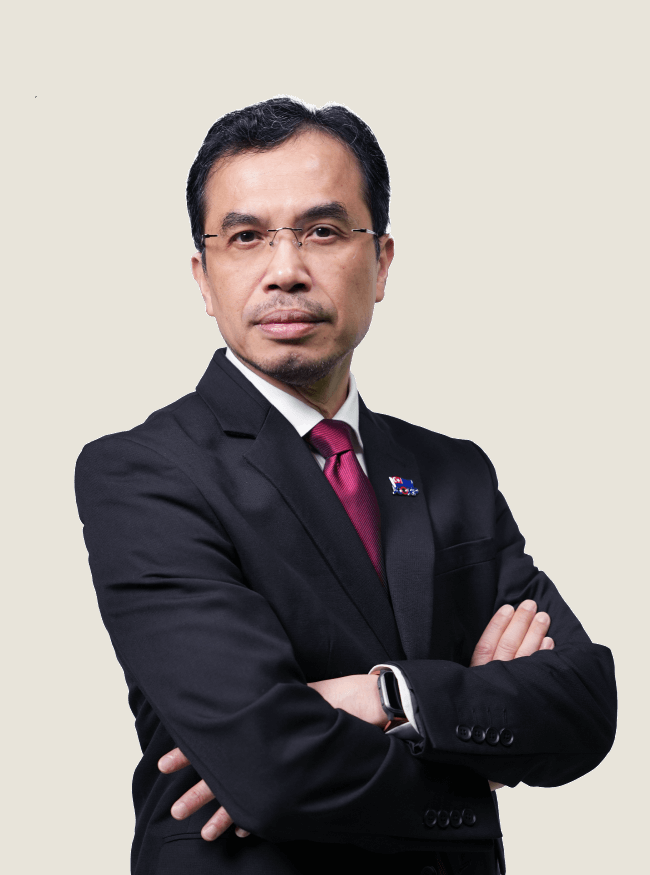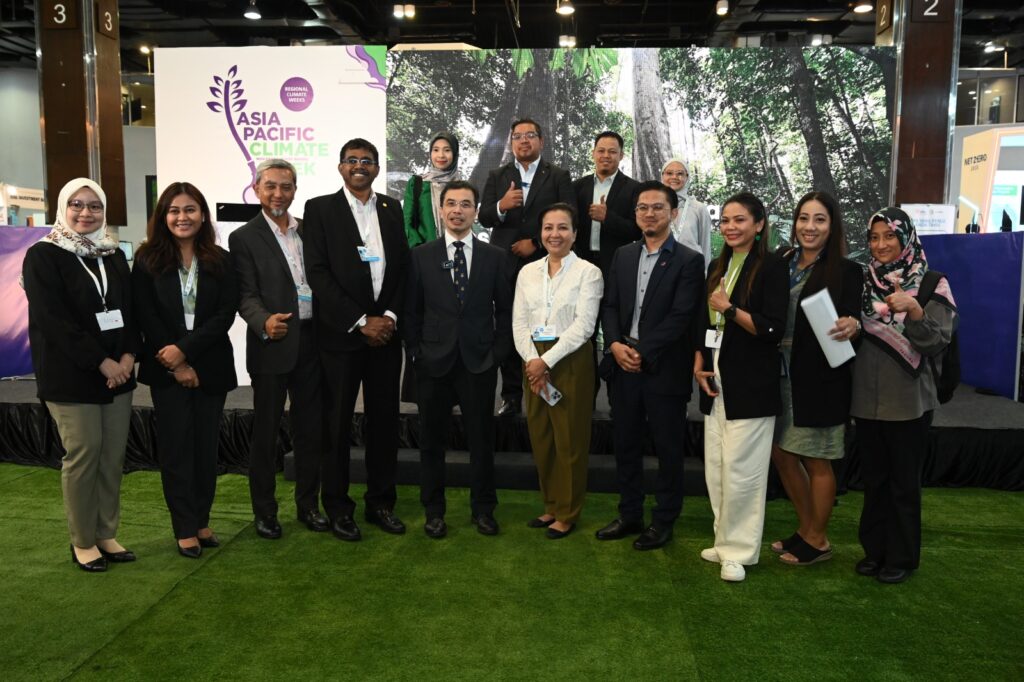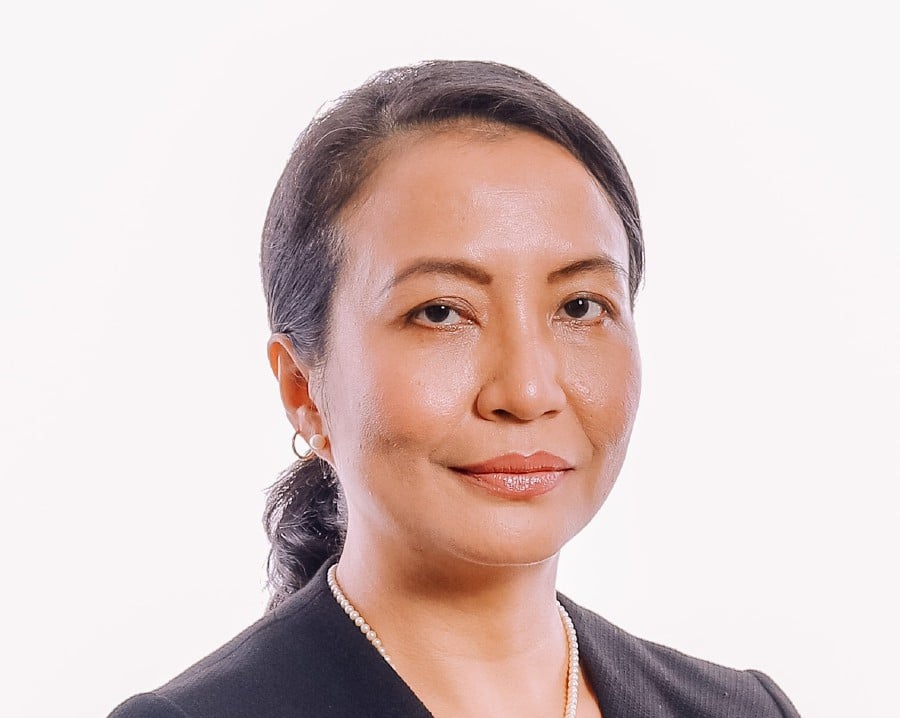In the action hub halls of the Persada Johor International Convention Centre, the Asia Pacific Climate Week (APCW) 2023 witnessed a groundbreaking presentation by Shamsul Anuar Abdul Majid, the Chief Investment Officer of Johor Corporation (JCorp). He highlighted not only the triumphs of JCorp but also the evolving landscape of responsible corporate citizenship in Malaysia.
Striking the Right Balance: ESG and Financial Returns

Shamsul Anuar underscored the importance of addressing Environmental, Social, and Governance (ESG) issues while ensuring financial returns for investors. He emphasized that businesses must strike a delicate balance between profitability and responsibility. This is a crucial theme that is increasingly shaping investment trends in Malaysia.
Mr. Anuar also acknowledged that smaller countries face an unequal burden when meeting sustainability standards. He called for regulatory commitments and fair incentives to facilitate widespread participation in sustainable practices. He pointed out that such incentives would benefit not only the environment but also long-term economic growth and stability.
The call for sustainability is important in Malaysia, where companies are facing increasing pressure to demonstrate their ESG commitment. The country is striving to become a regional leader in sustainable business practices, and businesses that fail to meet sustainability standards may face reputational and financial risks. Therefore, Mr. Anuar’s call for a nuanced approach that balances profitability with responsibility is a timely reminder to companies that they must act now to ensure a sustainable future.
The Aftermath: Unveiling JCorp’s Sustainability Blueprint
I had the opportunity to engage in a conversation with Zaidatul Zurita Abdul Rahman, the Head of Sustainability at JCorp. During our conversation, she explained in detail the comprehensive two-part framework that JCorp is currently developing to ensure sustainability.
She shared with me that the first part of the framework involves identifying and addressing the environmental impact of their operations, such as reducing carbon emissions and waste management. The second part of the framework focuses on social sustainability, which includes initiatives to improve the well-being of their employees and the communities they operate in.
Zaidatul Zurita Abdul Rahman emphasized that JCorp is committed to implementing sustainable practices across its entire business operations and supply chain. She also mentioned that the framework they are creating is aligned with the United Nations’ Sustainable Development Goals, which highlights their dedication to achieving global sustainability targets.
JCorp’s sustainability framework comprises two pillars – “Membina” and “Membela.”

Membina: Creating Values for a Sustainable Tomorrow
The first pillar of JCorp’s sustainability framework, “Membina,” is intricately designed to foster growth, leadership, and building. It is not merely about financial gains but centers on creating value in a sustainable and impactful manner. It emphasizes leadership and encourages building a better future for all stakeholders. This innovative approach aligns with JCorp’s commitment to responsible corporate practices.
Read more: https://www.marketinginasia.com/ms-low-ngai-yuen-a-visionary-leader-with-a-diverse-palette/
Membela: Enabling Sustainable Communities for a Shared Future
The second pillar, “Membela,” is a testament to JCorp’s dedication to enabling sustainable communities. It transcends the conventional boundaries of corporate responsibility by aiming to improve livelihoods, enhance community well-being, and preserve accessibility.
Collaboration between organizations and communities is essential to achieving sustainability goals, and this approach is at the heart of “Membela.” It focuses on building sustainable communities that can thrive in a changing world. The approach involves working with communities to develop solutions that are tailored to their unique needs. This approach enables JCorp to have a positive impact on the communities where it operates. At the same time, creating value for all stakeholders.
Paving the Way for a Sustainable Future: Zaidatul Zurita’s Vision

Zaidatul Zurita Abdul Rahman’s recent participation as a panelist at the 28th Conference of the Parties (COP28) in Dubai echoes JCorp’s commitment to green and resilient cities. The panel session was titled “Cities of the Future”. The session focused on discussing the future of cities in the context of climate change. JCorp’s active engagement in achieving net-zero emissions through nature-based and climate-centric solutions was underscored in the session. This is exemplified by their pioneering project, iBTEC (Ibrahim Technopolis), a smart industrial township in Kulai.
iBTEC is a visionary step forward for the region that catalyzes economic transformation and innovation. It is aligned with the New Industrial Master Plan 2030 (NIMP) and designed to drive economic growth. Particularly in new sectors such as renewable energy, technology, and sustainable development. iBTEC is embedded in the Johor-Singapore Special Economic Zone (SEZ) and is a strategic, high-impact project that will create significant multiplier effects, triggering demand for residential, retail, education, and healthcare services, among others. The development spans 7,290 acres and is expected to have a gross development value of RM25.4 billion over 25 years, with a focus on creating a vibrant economic ecosystem.
The discussion at the panel session highlighted the importance of employing sustainable practices in urban development. JCorp’s commitment to promoting green and resilient cities aligns with the global effort to mitigate the impact of climate change.
JCorp’s Sustained Commitment to Tomorrow
In a world grappling with environmental challenges, JCorp’s bold steps toward sustainability set a remarkable precedent. Zaidatul Zurita Abdul Rahman’s vision and the two-part framework unveiled at APCW 2023 showcase not only a commitment to responsible corporate practices but also a genuine effort to build a sustainable legacy for future generations. It also includes a set of social responsibility initiatives aimed at improving the lives of people in the communities where JCorp operates. As businesses worldwide grapple with their societal impact, JCorp stands tall, embodying the ethos of a corporation with a heart and a vision for a better, more sustainable tomorrow.
















